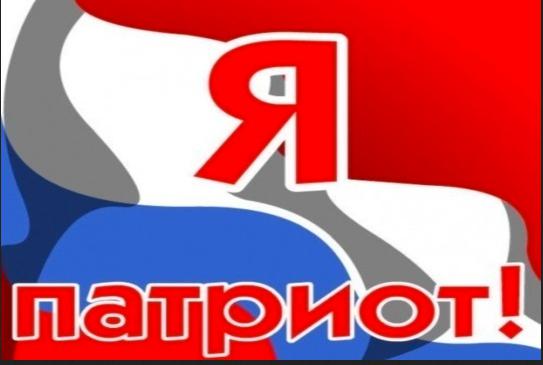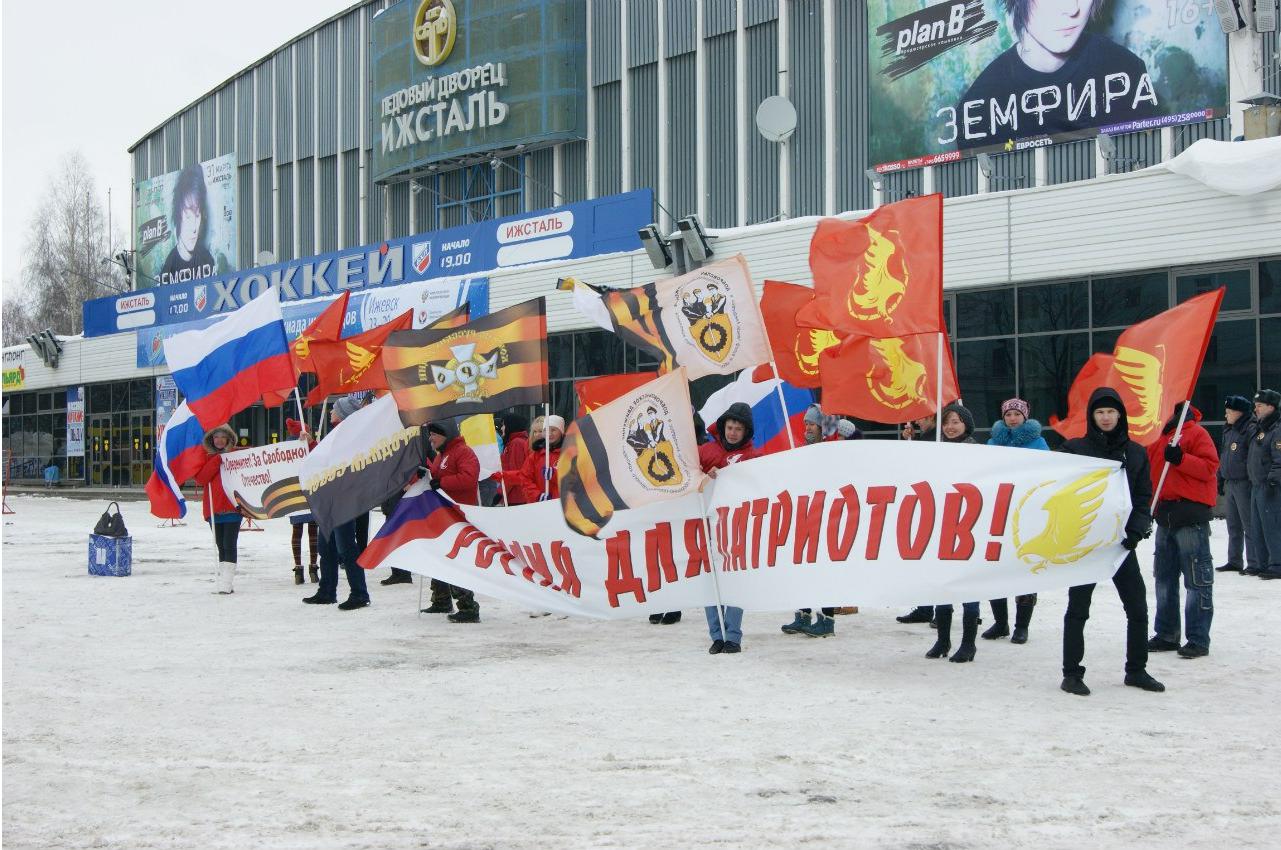This week in Russian media a lot of publications appeared witnessing the change of position of some well known and popular personalities from anti-Putin to pro-Putin.
A correspondent of the web site www.cety.ru asked a prominent liberal politician Irina Hakomada about the meaning of her and some of her friends change of views. Hakomada answered:
“I am a sensible, adult person who adequately assess reality. And when I see the strengthening of our country, reasonable steps and actions of our President, how should I behave? With whom and for what I should fight, if I live here and not in London? Besides, my children live here, getting education here, planning their careers here. One must be a complete idiot to fight alone with a state…”
Here is a quote from the statement made in Snob web site by another popular journalist and TV personality Ksenia Sobchak:
“The consent of the Russian people to live the way they live is democracy, if we understand democracy as following the will of the majority, forgetting about the clause: ‘subject to the rights of the minority’.
“And we, as minority, are in a besieged fortress; we will have to take these rules. In this new life, we will completely depend on what decisions will be taken by the majority. The majority will be deciding to permit us or not to continue to live in this country. If the exit visas will be introduced tomorrow, it will also be the will of the majority, because 70% of the population do not have passports and do not care about the freedom to leave the country…
“It’s time for us (West oriented Russians. S.Ts.) to stop living in the paradigm, where we consider ourselves advanced Europeans, and consider ourselves right. We are in some ways like the gay community: a minority in the vast country. The minority must agree with the majority, must get accustomed to live among people who vote with confidence and make decisions. And, in general, it makes sense for us to look at power ingratiately, because only the government can protect us from the majority. It can generously say to us: ‘Okay, guys, do not piss. You may travel abroad if you want. Behave modestly though.’ ”
The view that the politics of Putin’s government are, in fact, supported by the majority of Russians is shared by most of the commentators. Ilia Milstein, one of the prominent Russian democratic journalists, writes in one of the most democratic Russian web site Grani.ru:
“In more than a decade and a half, while the current ‘father of the nation’ was in power, Russian electorate was brought to the point where they quite consciously vote for the boss. The 88%, or whatever, percent of the population supports Putin. It is not a myth, it is sociology. It is the result of hard and successful work with the population, turned into TV viewers.”
A correspondent of the site Openrussia.org asked Natalia Zorkaya, a sociologist of the statistic institute Levada Center, comments on the situation in Russia today. Unlike the personalities quoted above, Zorkaya explains the pro–Putin sentiments of the Russian majority is more a result of their fear than their beliefs. Natalia Zorkaya said:
“People feel dependent on power, vulnerable to the arbitrariness of officials. They believe that they can do nothing about it, because they can not protect their rights. According to the majority, courts will not protect ‘people like us’, because they are corrupt and depend on the government.
“Back in the 1990s, the horizon of most Russians was very narrow, because they were focused on survival, rather than on development. The mass consciousness began to turn to the Soviet past for mythologized stability, security, predictability of what was happening… It is not only infantile. This is adaptation to the state violence, to the state arbitrariness.
“The code for subordination to state violence (and the fear associated with it) had not been destroyed. The Soviet character, that was the basis of the totalitarian regime, is now successfully recreated with many of its features: adaptability, weakness, wickedness.”
The correspondent asked Zorkaya:
“What impressed you most as a sociologist recently in public opinion?”
Zorkaya: “The anti-Ukrainian, anti-West and ‘Crimea–is-ours’ campaign. And especially, the enthusiasm with which it was accepted by the majority. There has been a fantastically quick revival of the most dense complex: Soviet, totalitarian.
“I understood that the beliefs of this kind had existed in the mass sub-consciousness, somewhere in its depths. But the fact that they came to the surface so quickly, that people rejoice on this monstrous return to the Soviet past, was a shock for me. Earlier, the hatred for the Baltic States, Georgia, Poland, had already risen, at the time these countries had been freed from the influence and pressure of Russia. But the current wave of anti-Ukrainian feelings tells me about the strongest dehumanization of Russian society, which does not want to know any truth, but enthusiastically listens to the side of evil. For me it’s a shock.”
Vladimir Sorokin, one of the leading contemporary Russian writers, also connects situation in today’s Russia with the Soviet past. Speaking at the festival “Big book” in Poland, he said:
“Literature and cinema are not able to bury the past. This is a matter of political decision, legal decision. Unfortunately, this did not happen in Russia the way it happened in Germany and Italy. There was not an elementary lustration. Yeltsin did not make it, because he was afraid that his entire team will be lustrated. It was a very big mistake of Democrats. In Poland, it was all different. And now they live in a normal, civilized, democratic, European country.* The Soviet did not bury the corpse, unfortunately. There was a belief that the corps would rot by itself. No, it turned out to be enduring. The forces that wanted its return, magically revived it. Now it has risen as a zombie. It’s kind of awful, actually. It frightens the civilized world.”
Not all in the opposition to Putin believe, though, that contemporary problems are rooted only in the Soviet past.
Nikolai Uskov, the cheaf editor of Russian Forbs, a historian by education, said in the interview to the radio “Echo of Moscow”:
“I remember Russian history: the thinking minority never lived very comfortably in Russia. By and large this is a country of very rigid statist philosophy that suppresses individuality. The country is based on this philosophy. It is based on the primacy of statist values. A person was constantly sacrificed here to some higher goals, ideals and so on. The serfdom to god, to tzar, to Communist ideals, and to national interests is considered to be the only worthy task of a patriot. The Russian nobility used to say: ‘we are going into Service.’ Serfdom is not a job, it’s service. Our parents expressed the same attitude. It was something very important. Mission. It is not a job, not a place where one earns money or realizes himself. In a country with such an ethic, with such a system of values, of course it is difficult to account for those who believe that a human being is the center of universe and the whole world turns for the happiness of a particular individual, his modest domestic interests, his wish to raise children, to give them a good education, to live in peace and so on. All of this in Russia has traditionally been the secondary, ‘Philistine’, and so was shameful.
“It’s bad, of cause. But it is still just a natural state for this very odd country.”




After nine terrible years under Communism, my Ukranian grandmother and her family escaped to freedom, and came here legally. They NEVER trusted Russia. Even after the fall of the Soviet Union in 1991, they remained skeptical. My grandmother warned that Communism never dies; it simply goes underground. And someday, she cautioned, it WILL be BACK!